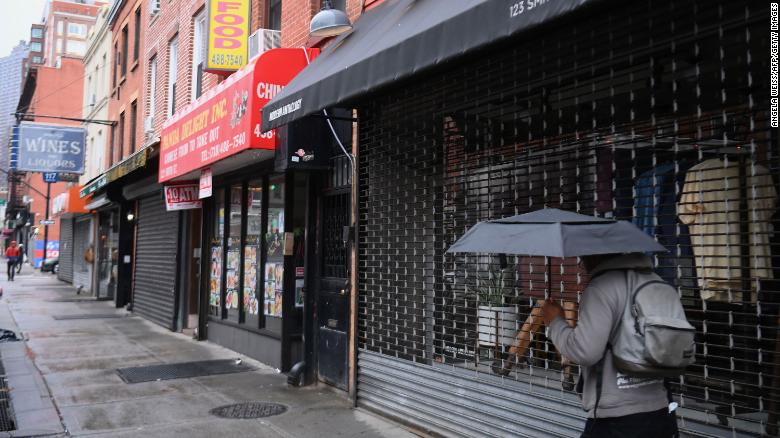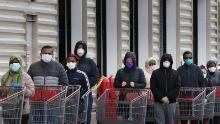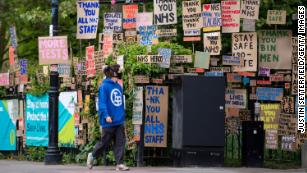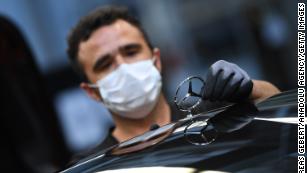-
IP addresses are NOT logged in this forum so there's no point asking. Please note that this forum is full of homophobes, racists, lunatics, schizophrenics & absolute nut jobs with a smattering of geniuses, Chinese chauvinists, Moderate Muslims and last but not least a couple of "know-it-alls" constantly sprouting their dubious wisdom. If you believe that content generated by unsavory characters might cause you offense PLEASE LEAVE NOW! Sammyboy Admin and Staff are not responsible for your hurt feelings should you choose to read any of the content here. The OTHER forum is HERE so please stop asking.
You are using an out of date browser. It may not display this or other websites correctly.
You should upgrade or use an alternative browser.
You should upgrade or use an alternative browser.
祖国伟大!GVGT! Chinese Economy STRONGLY UP-TRUN RECOVERED STRONGLY FROM COVID! 发啊!None Else But CHINA! V-shape for VICTORY!
- Thread starter tun_dr_m
- Start date
- Joined
- Aug 8, 2008
- Messages
- 6,070
- Points
- 83
https://mil.news.sina.com.cn/dgby/2020-07-17/doc-iivhvpwx5922750.shtml
胡锡进:今天就给美国人上一课 中国共产党是谁
2020年07月17日 14:02 环球时报 作者:胡锡进观察
4,436
老胡今天要给美国人上一课:中国共产党是谁。
《纽约时报》爆出美国政府正在商讨禁止所有中共党员及其家属赴美旅行的动议,这迅速引爆了舆论。这一设想的荒唐性达到了难以置信的程度。在华盛顿最初提出这个动议的是什么人?他们了解中国共产党吗,了解中国社会吗?莫非是要把这个奇葩主张当一次政治裸奔来制造轰动,这是一个有丰富国际关系经验的大国好意思玩的地缘政治冲浪吗?老胡今天要给美国人上一课:中国共产党是谁。

先说中共有9300万党员意味着什么吧。这支队伍的庞大程度是西方人无法想象的,9300万不仅是一个简单数字。它比德国的总人口还多,如果美国的制裁目标还包括这9300万中共党员的家属,只算配偶、孩子和父母,加起来就至少有3亿人,与美国的总人口相当,如果再加上岳父母、兄弟姐妹以及他们的家人,大概有一半中国人都要包括进去。中共党员光是亲属关系就联系了半个中国社会,换个角度说,极少有中国人,他的亲朋好友中没有人是中共党员。因此无论是国家还是人民,中共党员都以西方政治学词汇无法描述的深入程度融入了其中。
再来看看中共党员都是些什么人。中共长期执政,所以中国各地各部门的主要官员大部分都是中共党员,但中高级的党员干部毕竟只是中共党员中的很一小部分,绝大部分中共党员都生活、工作在基层,身处普通民众中间,他们自己就是老百姓。不同的是,他们通常是各行各业的积极分子和活跃力量,是中共这棵大树深入到社会泥土中丰富的根须,他们参与构建了中国社会积极向上的生态。
中共不是西方那种政治生态下的政党,中共与西式政党在规模、宗旨、运行机制和所发挥作用各个方面都有质的区别,是性质上完全不同的政党。可以说中共对应的根本就不是英语中的party,而且随着中共的不断自我发展和重塑,英语中没有一个概念能够真正与它对应。定义中共需要从不同角度描述的集合,包括它是中国这个庞大社会的钢筋骨架,是整个国家的动员体系和运转体系的主干部分,它还构成了中国社会先进人物群体的遴选和培养机制,等等。中共是马克思主义与中国国情相结合的产物,仅仅凭借西方特殊的历史、社会及政治经验,根本无法了解这个与中国人民一起把国家带到世界第二大经济体位置的政党。

大部分中共党员都是年轻时就加入到这个组织中来的,入党的人通常有理想,他们在工作中有比较强的业务表现,同时富有集体主义精神,热心肠,在小环境中口碑比较好。主动承担更不容易的工作,比其他人更多付出,这是共产党员的义务。遇到灾难等急难险重情况,共产党员要冲在前面,这是党员中间和社会上共同的认知与要求。新冠疫情期间,“共产党员先上”又一次成为抗疫前线的普遍口号,而且实际情况也的确如此。很多医护人员,包括不幸感染并失去生命的李文亮,都是中共党员。
诚然,有9300万党员,庞大的中共也面临复杂的一面。中共各级干部队伍里出了少数腐败分子,这引发了全党坚决的反腐倡廉行动。也正因为中共十八大以来卓有成效的反腐败、正风气,中共更加赢得人民的拥护和信任,而这也是美国那些反华势力大失所望的原因。中共与全国人民一道为彻底改变中华民族的命运而奋斗,它既领导了人民,也完全融入在人民中间,这一根本性质从来不会变。中共的奋斗与担当,极大促进了中国的强大和民生的重塑,中国老百姓心里是有这杆秤的。
主张把中共从中国和中国人民中间摘出来,并对之进行“精准打击”,这是美国少数执政精英的幻想和蛊惑。这就好比要攻击一个人的心脏和他的神经系统,但宣称对这个人的整个身体很友好一样虚伪、狂妄。与所有中共党员作对,毫无疑问就是与中国人民作对,是要打击中国社会谋发展、促进步最承重的部分。西方体制下的政党是用于谋取某个群体利益的公开政治工具,中共则以为全体人民谋利益为己任,这也构成了中共强大的力量源泉。
美国本届政府如今公开与中共为敌,这是要在两个国家和两国人民之间播种深仇大恨,让双方的斗争不再是利益之争,而变成根本的对抗。请问,这样的对抗对21世纪来说意味着什么?对希望和平的人们又意味着什么?中美是当今世界最大的两支综合力量,都是核大国,有着极强的战略动员力。美国的这届政府是要通过制造一轮又一轮紧张把这两个国家朝着全面战略对撞逼吗?他们是要最终埋葬世界的和平与安宁吗?
美国深陷新冠疫情,已是全球最严重的疫区,未来很长时间恐怕难有好转。说实话,至少最近一两年,除特殊情况外很少会有中国人愿意去美国,美媒报道的酝酿中的对中共党员的制裁在相当长一段时间里将毫无意义。令人感到气愤的是美方一段时间以来公开攻击中共的肆无忌惮的政策宣示,它破了大国外交的底线和21世纪国际关系的基本文明。必须指出,这样公然把世界往冷战推,是一种反人类的犯罪。历史不是瞎子,如此疯狂地毒化21世纪,一定会遭报应的。
Hu Xijin: let's give Americans a lesson today. Who is the Communist Party of China
July 17, 2020 14:02 Global Times Author: Hu Xijin observation
4,436
Lao Hu is going to teach Americans a lesson today: who is the Communist Party of China.
The New York Times broke out that the US government was discussing a motion to ban all CPC members and their families from travelling to the United States, which quickly ignited public opinion. The absurdity of this assumption has reached an incredible level. Who was the first person to move the motion in Washington? Do you know about the Chinese Communist Party? Is it really a geopolitical surfer for a big country with rich experience in international relations? Lao Hu is going to teach Americans a lesson today: who is the Communist Party of China.
Let's start with what it means to have 93 million CPC members. The scale of this team is unimaginable in the West. 93 million is not just a simple number. It is larger than the total population of Germany. If the US sanctions target also includes the families of 93 million CPC members, including their spouses, children and parents, there will be at least 300 million people in total, which is equivalent to the total population of the United States. If we add in their parents in law, brothers and sisters and their families, about half of the Chinese will be included. A member of the Communist Party of China has contacted half of China's society only through kinship. To put it another way, there are very few Chinese. None of his relatives and friends is a member of the Communist Party of China. Therefore, no matter the country or the people, the CPC members have been integrated into it with a depth that can not be described by western political science words.
Let's take a look at the party members. Since the Communist Party of China has been in power for a long time, most of the main officials in various departments in China are members of the Communist Party of China. However, the middle and senior party members and cadres are only a small part of the party members. Most of the party members live and work at the grass-roots level and are among the ordinary people themselves. The difference is that they are usually activists and active forces in all walks of life. They are the rich roots of the big tree of the Communist Party of China, which goes deep into the soil of society. They participate in the construction of a positive ecological environment of Chinese society.
The Communist Party of China is not a political party in the western political environment. There are qualitative differences between the Chinese Communist Party and the western style political party in terms of scale, purpose, operation mechanism and function. They are totally different parties in nature. It can be said that the Communist Party of China is not the party in English at all, and with the continuous self-development and remodeling of the Communist Party of China, no concept in English can really correspond to it. The definition of the Chinese Communist Party needs to be described from different angles, including that it is the steel skeleton of China's huge society, the main part of the mobilization system and operation system of the whole country, and it also constitutes the selection and training mechanism of advanced groups of Chinese society, etc. The Communist Party of China is the product of the combination of Marxism and China's national conditions. Relying on the special historical, social and political experience of the west, it is impossible to understand the political party that has brought the country to the position of the world's second largest economy together with the Chinese people.
Most of the members of the Communist Party of China joined the organization when they were young. The people who joined the party usually had ideals. They had strong professional performance in their work. At the same time, they were full of collectivism spirit, warm-hearted, and had a good reputation in a small environment. It is the duty of Communist Party members to take the initiative to undertake more difficult work and pay more than others. In the face of disasters and other emergencies, Communist Party members should be in the front, which is the common cognition and requirement of the party members and the society. During the new epidemic, "Communist Party members first" has once again become a common slogan in the front line of anti epidemic, and the actual situation is also true. Many medical staff, including Li Wenliang, who was unfortunately infected and lost his life, are members of the Communist Party of China.
To be sure, with 93 million Party members, the huge Communist Party of China is also faced with a complex side. A small number of corrupt elements have emerged from the ranks of cadres at all levels of the Communist Party of China, which has triggered the resolute anti-corruption action of the whole party. It is also because of the effective anti-corruption and positive atmosphere since the 18th National Congress of the Communist Party of China that the Communist Party of China has won the support and trust of the people. This is also the reason why those anti china forces in the United States are greatly disappointed. The Communist Party of China, together with the people of the whole country, is striving to change the destiny of the Chinese nation. It has not only led the people, but also fully integrated into the people. This fundamental nature will never change. The struggle and responsibility of the Communist Party of China has greatly promoted the strength of China and the reconstruction of people's livelihood. The Chinese people have this steelyard in their hearts.
It is the illusion and bewitchment of a small number of American ruling elites that the Communist Party of China should be separated from China and the Chinese people and "strike it with precision". It's like attacking a person's heart and nervous system, but claiming to be friendly to the person's whole body is just as hypocritical and arrogant. To fight against all the CPC members is undoubtedly against the Chinese people. It is the most important part to crack down on Chinese Society for development and promotion. The political parties under the western system are the public political tools used to seek the interests of a certain group, while the Communist Party of China takes the interests of all the people as its own responsibility, which also constitutes the powerful source of the CPC.
The current administration of the United States is now openly hostile to the Communist Party of China. This is to sow deep hatred between the two countries and the two peoples, so that the struggle between the two sides is no longer a struggle for interests, but a fundamental confrontation. What does this confrontation mean for the 21st century? What does it mean to those who want peace?
胡锡进:今天就给美国人上一课 中国共产党是谁
2020年07月17日 14:02 环球时报 作者:胡锡进观察
4,436
老胡今天要给美国人上一课:中国共产党是谁。
《纽约时报》爆出美国政府正在商讨禁止所有中共党员及其家属赴美旅行的动议,这迅速引爆了舆论。这一设想的荒唐性达到了难以置信的程度。在华盛顿最初提出这个动议的是什么人?他们了解中国共产党吗,了解中国社会吗?莫非是要把这个奇葩主张当一次政治裸奔来制造轰动,这是一个有丰富国际关系经验的大国好意思玩的地缘政治冲浪吗?老胡今天要给美国人上一课:中国共产党是谁。

先说中共有9300万党员意味着什么吧。这支队伍的庞大程度是西方人无法想象的,9300万不仅是一个简单数字。它比德国的总人口还多,如果美国的制裁目标还包括这9300万中共党员的家属,只算配偶、孩子和父母,加起来就至少有3亿人,与美国的总人口相当,如果再加上岳父母、兄弟姐妹以及他们的家人,大概有一半中国人都要包括进去。中共党员光是亲属关系就联系了半个中国社会,换个角度说,极少有中国人,他的亲朋好友中没有人是中共党员。因此无论是国家还是人民,中共党员都以西方政治学词汇无法描述的深入程度融入了其中。
再来看看中共党员都是些什么人。中共长期执政,所以中国各地各部门的主要官员大部分都是中共党员,但中高级的党员干部毕竟只是中共党员中的很一小部分,绝大部分中共党员都生活、工作在基层,身处普通民众中间,他们自己就是老百姓。不同的是,他们通常是各行各业的积极分子和活跃力量,是中共这棵大树深入到社会泥土中丰富的根须,他们参与构建了中国社会积极向上的生态。
中共不是西方那种政治生态下的政党,中共与西式政党在规模、宗旨、运行机制和所发挥作用各个方面都有质的区别,是性质上完全不同的政党。可以说中共对应的根本就不是英语中的party,而且随着中共的不断自我发展和重塑,英语中没有一个概念能够真正与它对应。定义中共需要从不同角度描述的集合,包括它是中国这个庞大社会的钢筋骨架,是整个国家的动员体系和运转体系的主干部分,它还构成了中国社会先进人物群体的遴选和培养机制,等等。中共是马克思主义与中国国情相结合的产物,仅仅凭借西方特殊的历史、社会及政治经验,根本无法了解这个与中国人民一起把国家带到世界第二大经济体位置的政党。

大部分中共党员都是年轻时就加入到这个组织中来的,入党的人通常有理想,他们在工作中有比较强的业务表现,同时富有集体主义精神,热心肠,在小环境中口碑比较好。主动承担更不容易的工作,比其他人更多付出,这是共产党员的义务。遇到灾难等急难险重情况,共产党员要冲在前面,这是党员中间和社会上共同的认知与要求。新冠疫情期间,“共产党员先上”又一次成为抗疫前线的普遍口号,而且实际情况也的确如此。很多医护人员,包括不幸感染并失去生命的李文亮,都是中共党员。
诚然,有9300万党员,庞大的中共也面临复杂的一面。中共各级干部队伍里出了少数腐败分子,这引发了全党坚决的反腐倡廉行动。也正因为中共十八大以来卓有成效的反腐败、正风气,中共更加赢得人民的拥护和信任,而这也是美国那些反华势力大失所望的原因。中共与全国人民一道为彻底改变中华民族的命运而奋斗,它既领导了人民,也完全融入在人民中间,这一根本性质从来不会变。中共的奋斗与担当,极大促进了中国的强大和民生的重塑,中国老百姓心里是有这杆秤的。
主张把中共从中国和中国人民中间摘出来,并对之进行“精准打击”,这是美国少数执政精英的幻想和蛊惑。这就好比要攻击一个人的心脏和他的神经系统,但宣称对这个人的整个身体很友好一样虚伪、狂妄。与所有中共党员作对,毫无疑问就是与中国人民作对,是要打击中国社会谋发展、促进步最承重的部分。西方体制下的政党是用于谋取某个群体利益的公开政治工具,中共则以为全体人民谋利益为己任,这也构成了中共强大的力量源泉。
美国本届政府如今公开与中共为敌,这是要在两个国家和两国人民之间播种深仇大恨,让双方的斗争不再是利益之争,而变成根本的对抗。请问,这样的对抗对21世纪来说意味着什么?对希望和平的人们又意味着什么?中美是当今世界最大的两支综合力量,都是核大国,有着极强的战略动员力。美国的这届政府是要通过制造一轮又一轮紧张把这两个国家朝着全面战略对撞逼吗?他们是要最终埋葬世界的和平与安宁吗?
美国深陷新冠疫情,已是全球最严重的疫区,未来很长时间恐怕难有好转。说实话,至少最近一两年,除特殊情况外很少会有中国人愿意去美国,美媒报道的酝酿中的对中共党员的制裁在相当长一段时间里将毫无意义。令人感到气愤的是美方一段时间以来公开攻击中共的肆无忌惮的政策宣示,它破了大国外交的底线和21世纪国际关系的基本文明。必须指出,这样公然把世界往冷战推,是一种反人类的犯罪。历史不是瞎子,如此疯狂地毒化21世纪,一定会遭报应的。
Hu Xijin: let's give Americans a lesson today. Who is the Communist Party of China
July 17, 2020 14:02 Global Times Author: Hu Xijin observation
4,436
Lao Hu is going to teach Americans a lesson today: who is the Communist Party of China.
The New York Times broke out that the US government was discussing a motion to ban all CPC members and their families from travelling to the United States, which quickly ignited public opinion. The absurdity of this assumption has reached an incredible level. Who was the first person to move the motion in Washington? Do you know about the Chinese Communist Party? Is it really a geopolitical surfer for a big country with rich experience in international relations? Lao Hu is going to teach Americans a lesson today: who is the Communist Party of China.
Let's start with what it means to have 93 million CPC members. The scale of this team is unimaginable in the West. 93 million is not just a simple number. It is larger than the total population of Germany. If the US sanctions target also includes the families of 93 million CPC members, including their spouses, children and parents, there will be at least 300 million people in total, which is equivalent to the total population of the United States. If we add in their parents in law, brothers and sisters and their families, about half of the Chinese will be included. A member of the Communist Party of China has contacted half of China's society only through kinship. To put it another way, there are very few Chinese. None of his relatives and friends is a member of the Communist Party of China. Therefore, no matter the country or the people, the CPC members have been integrated into it with a depth that can not be described by western political science words.
Let's take a look at the party members. Since the Communist Party of China has been in power for a long time, most of the main officials in various departments in China are members of the Communist Party of China. However, the middle and senior party members and cadres are only a small part of the party members. Most of the party members live and work at the grass-roots level and are among the ordinary people themselves. The difference is that they are usually activists and active forces in all walks of life. They are the rich roots of the big tree of the Communist Party of China, which goes deep into the soil of society. They participate in the construction of a positive ecological environment of Chinese society.
The Communist Party of China is not a political party in the western political environment. There are qualitative differences between the Chinese Communist Party and the western style political party in terms of scale, purpose, operation mechanism and function. They are totally different parties in nature. It can be said that the Communist Party of China is not the party in English at all, and with the continuous self-development and remodeling of the Communist Party of China, no concept in English can really correspond to it. The definition of the Chinese Communist Party needs to be described from different angles, including that it is the steel skeleton of China's huge society, the main part of the mobilization system and operation system of the whole country, and it also constitutes the selection and training mechanism of advanced groups of Chinese society, etc. The Communist Party of China is the product of the combination of Marxism and China's national conditions. Relying on the special historical, social and political experience of the west, it is impossible to understand the political party that has brought the country to the position of the world's second largest economy together with the Chinese people.
Most of the members of the Communist Party of China joined the organization when they were young. The people who joined the party usually had ideals. They had strong professional performance in their work. At the same time, they were full of collectivism spirit, warm-hearted, and had a good reputation in a small environment. It is the duty of Communist Party members to take the initiative to undertake more difficult work and pay more than others. In the face of disasters and other emergencies, Communist Party members should be in the front, which is the common cognition and requirement of the party members and the society. During the new epidemic, "Communist Party members first" has once again become a common slogan in the front line of anti epidemic, and the actual situation is also true. Many medical staff, including Li Wenliang, who was unfortunately infected and lost his life, are members of the Communist Party of China.
To be sure, with 93 million Party members, the huge Communist Party of China is also faced with a complex side. A small number of corrupt elements have emerged from the ranks of cadres at all levels of the Communist Party of China, which has triggered the resolute anti-corruption action of the whole party. It is also because of the effective anti-corruption and positive atmosphere since the 18th National Congress of the Communist Party of China that the Communist Party of China has won the support and trust of the people. This is also the reason why those anti china forces in the United States are greatly disappointed. The Communist Party of China, together with the people of the whole country, is striving to change the destiny of the Chinese nation. It has not only led the people, but also fully integrated into the people. This fundamental nature will never change. The struggle and responsibility of the Communist Party of China has greatly promoted the strength of China and the reconstruction of people's livelihood. The Chinese people have this steelyard in their hearts.
It is the illusion and bewitchment of a small number of American ruling elites that the Communist Party of China should be separated from China and the Chinese people and "strike it with precision". It's like attacking a person's heart and nervous system, but claiming to be friendly to the person's whole body is just as hypocritical and arrogant. To fight against all the CPC members is undoubtedly against the Chinese people. It is the most important part to crack down on Chinese Society for development and promotion. The political parties under the western system are the public political tools used to seek the interests of a certain group, while the Communist Party of China takes the interests of all the people as its own responsibility, which also constitutes the powerful source of the CPC.
The current administration of the United States is now openly hostile to the Communist Party of China. This is to sow deep hatred between the two countries and the two peoples, so that the struggle between the two sides is no longer a struggle for interests, but a fundamental confrontation. What does this confrontation mean for the 21st century? What does it mean to those who want peace?
- Joined
- Aug 28, 2011
- Messages
- 3,990
- Points
- 63
https://www.reuters.com/article/us-...y-the-most-in-300-years-in-2020-idUSKCN21W1EQ
April 14, 2020 / 7:27 PM / 3 months ago
UK economy could shrink by the most in 300 years in 2020
William Schomberg, Andy Bruce
4 Min Read
LONDON (Reuters) - Britain’s economy could shrink by 13% this year due to the government’s coronavirus shutdown, its deepest recession in three centuries, and public borrowing is set to surge to a post-World War Two high, the country’s budget forecasters said.
FILE PHOTO: Canary Wharf is seen with the O2 arena, illuminated blue in support of NHS and other key workers as the number of coronavirus cases increases globally, London, Britain, April 2, 2020. REUTERS/Paul Childs
In the April-June period alone, economic output could plunge by 35%, with the unemployment rate more than doubling to 10%, the Office for Budget Responsibility said on Tuesday. A bounce-back may come later in the year if restrictions on public life to slow the spread of the coronavirus are lifted, it added.
Finance minister Rishi Sunak said he was “deeply troubled” by the prospect that two million people would lose their jobs due to the impact of the virus.
“This is going to be hard. Our economy is going to take a significant hit,” he said at a daily government news conference.
The OBR stressed it was not making an official forecast, given the lack of clarity about how long the government would require businesses to remain closed to the public. The OBR assumes a full shutdown for three months, followed by a gradual lifting over a further three-month period.
Separately, the International Monetary Fund said it expected Britain’s economy to shrink 6.5% in 2020, similar to other economies, before growing by 4.0% in 2021.
But the outlook for Britain’s public finances is stark.
The OBR said the hit to tax revenues and the government’s huge spending plans meant the budget deficit could hit 273 billion pounds ($342 billion) in the 2020/21 tax year — five times its previous estimate.
That would be equivalent to 14% of gross domestic product, higher than the 10% level hit after the global financial crisis that began in 2007. Britain had gradually lowered the deficit to about 2%, mainly through a decade of spending cuts for many public services.
RISK OF SCARRING
The Resolution Foundation, a think-tank, said it was plausible that the economy could suffer a more sustained hit than outlined by the OBR.
“This scenario also assumes almost no scarring or lasting impact on the economy from this recession, which history shows is unlikely to be the case,” it said.
The OBR said public sector net debt could exceed 100% of GDP during the 2020/21 financial year but end it at around 95%.
Sunak did not want to be drawn on whether he would seek to reduce this debt level through tighter fiscal policy after the crisis, and said he was committed to the government’s ‘levelling up’ agenda which involves heavy infrastructure spending.
“The best way out of this for all of us is to just grow the economy,” he said.
The annual budget deficit - as opposed to the debt accrued - should fall back to normal once the crisis is over, he added.
Before the government shut down the economy from March 20 to slow the spread of the coronavirus, the OBR had forecast debt would be 77% of GDP in 2020/21.
“It should be borne in mind that the short- and medium-term outlook for the economy and the public finances would be very much worse without any fiscal and monetary response,” the OBR said.
The Bank of England last month cut interest rates twice, ramped up its bond-buying programme by a record 200 billion pounds and took other measures to help companies secure credit.
Sunak said on Tuesday banks were issuing more state-backed loans to businesses and that companies would receive cash from a job-guarantee scheme by the end of the month, but warned again that the government could not save every job or business.
He also denied reports of tensions between his department and the health ministry over the duration of the lockdown.
“It’s clear we must defeat this virus as quickly as possible,” Sunak said, adding there was “not a choice between health and economics. That defies common sense”.
Additional reporting by David Milliken and Kylie MacLellan, Editing by Angus Macswan, Catherine Evans and Gareth Jones
Our Standards:The Thomson Reuters Trust Principles.
https://www.straitstimes.com/busine...lump-in-300-years-from-coronavirus-crisis-boe
UK economy headed for worst slump in 300 years from coronavirus crisis: BoE
 Over 2020 as a whole, output was at risk of shrinking by 14 per cent.PHOTO: REUTERS
Over 2020 as a whole, output was at risk of shrinking by 14 per cent.PHOTO: REUTERS
Published
May 7, 2020, 5:23 pm SGT
Facebook Twitter
LONDON (REUTERS) - The Bank of England said Britain could be headed for its biggest economic slump in over 300 years due to the coronavirus lockdown and kept the door open on Thursday (May 7) for further stimulus.
In what it called an 'illustrative scenario' rather than a standard forecast, the BoE said Britain's economy was on course to shrink by 25 per cent in the three months to June and for unemployment to jump to more than 9 per cent of the workforce.
Over 2020 as a whole, output was at risk of shrinking by 14 per cent - an annual decline last seen in the early 1700s, when Britain was beset by natural disaster and war - despite what the BoE described as "very significant monetary and fiscal stimulus".
The central bank's scenario did, however, foresee the economy bouncing back sharply in 2021 with growth of 15 per cent as lockdown restrictions are loosened.
The BoE kept its benchmark interest rate at an all-time low of 0.1 per cent and left its target for bond-buying, most of it British government debt, at£645 billion pounds (S$1.13 trillion), as the stimulus measures taken in March continued to play out.
But in a sign more might be on the way, two of its nine policymakers voted to increase the central bank's bond-buying firepower by £100 billion, and governor Andrew Bailey said the BoE could act again.
"However the economic outlook evolves, the Bank will act as necessary to deliver the monetary and financial stability that are essential for long-term prosperity and meet the needs of the people of this country," Governor Andrew Bailey said.
"This is our total and unwavering commitment."
He said the BoE expected "the recovery of the economy to happen over time, though much more rapidly than the pull-back from the global financial crisis."
Related Story
Global economy to contract at steepest rate on record, recovery U-shaped: Poll
Related Story
Coronavirus: Recession 'way worse' than in 2008, says IMF chief
Related Story
We have to reorder our lives because of coronavirus pandemic, and it’s hard
The illustrative scenario was based on the government gradually lifting its coronavirus lockdown, that has shuttered swathes of the economy, between June and September.
Both decisions announced on Thursday were in line the forecasts of most economists in a Reuters poll.
Many economists expect the BoE to increase its asset purchase programme in June, before the extra 200 billion pounds it gave itself in March is exhausted by the furious pace of its buying of British government debt.
Some economists doubted Britain would bounce back as quickly as the BoE assumed, after recovery following the 2008-09 financial crisis took much longer than first expected.
"We see this forecast as credible for 2020, but are less convinced by the 2021 recovery, where we take a more cautious view, implying weaker growth, lower inflation, wider deficits and more MPC action," Morgan Stanley's Mr Jacob Nell said.
The government has already rushed out spending and tax measures worth about £100 billion to try to counter the effect of its coronavirus lockdown.
RISKS OF BIGGER HIT
The BoE said inflation was likely to fall below 1 per cent in the next few months, half the BoE's target, but that recent figures suggested that demand had stabilised, albeit at very low levels.
The pound rose after the central bank's announcement, initially gaining as much as half a cent against the US dollar. British government bonds prices fell slightly.
Last week, the US Federal Reserve restated a pledge to keep interest rates low and continue offering trillions of dollars in credit as long as the economy needs it, and the European Central Bank kept the door open to further stimulus.
Minutes of this week's discussions at the BoE showed policymakers thought there were risks that the illustrative scenario could prove too optimistic because people might remain cautious about resuming their normal lives after the lockdown.
Workers might be worried about their jobs and companies might also be more risk averse.
Related Story
Coronavirus microsite: Get latest updates, videos and graphics
Related Story
Coronavirus explainers: What you should know to protect yourself
Related Story
Coronavirus visual guide: Interactive graphics on the pandemic
The scenario did not cover the risk of a return of the coronavirus causing a second spike in infections and renewed lockdown.
"The financial system was, however, in a much better position to support households and businesses through this period compared with the global financial crisis," the minutes said.
A separate BoE report on Thursday said an emergency test of the financial system's resilience showed that top banks and building societies could keep lending - and also should do so to avoid an even deeper downturn.
https://edition.cnn.com/2020/05/07/economy/uk-economy-bank-of-england/index.html
The UK economy is heading for its worst crash in 300 years
By Charles Riley, CNN Business
Updated 1503 GMT (2303 HKT) May 7, 2020


https://www.sammyboy.com/javascript:void(0);

Paycheck Protection Program stops issuing new loans

Airbus to cut 15,000 jobs

Fewer Black businesses eligible for pandemic aid
US facing 'avalanche of evictions' as rent freezes expire

The US is in a recession. Here's what that means
Here's where meat prices are headed

Why budget airlines could see big changes post pandemic

Plexiglass, masks, warning signs: Is this the office of the future?

The economy is crumbling. What will a recovery look like?

How masks are reshaping the face of the retail economy

Unemployed workers about to lose enhanced benefits

This portable ultrasound technology could help fight Covid-19

This coronavirus-killing MIT robot could end up in your local supermarket

Disney World reopens after months-long closure
Delta CEO: Airline industry will be permanently smaller post-pandemic

US economy added 4.8 million jobs in June

Paycheck Protection Program stops issuing new loans

Airbus to cut 15,000 jobs
Fewer Black businesses eligible for pandemic aid
US facing 'avalanche of evictions' as rent freezes expire
The US is in a recession. Here's what that means

Here's where meat prices are headed

Why budget airlines could see big changes post pandemic
Plexiglass, masks, warning signs: Is this the office of the future?

The economy is crumbling. What will a recovery look like?

How masks are reshaping the face of the retail economy

Unemployed workers about to lose enhanced benefits

This portable ultrasound technology could help fight Covid-19

This coronavirus-killing MIT robot could end up in your local supermarket
Disney World reopens after months-long closure
Delta CEO: Airline industry will be permanently smaller post-pandemic
US economy added 4.8 million jobs in June
London (CNN Business)The UK economy is heading for its worst crash in more than 300 years because of the coronavirus pandemic, according to a new forecast from the Bank of England.
The central bank said Thursday that the British economy could shrink by 14% this year. That would be the biggest annual contraction since a decline of 15% in 1706, based on the bank's own best estimate of historical data.

Europe risks botching its big plans to rescue the economy
Governor Andrew Bailey said it would respond as necessary to support the economy as the coronavirus threat evolves, but stopped short of announcing any new stimulus measures.
In a report that examined the impact of the pandemic, the Bank of England said that GDP contracted by 3% in the first quarter of this year and would fall by as much as 25% in the second quarter, leaving the economy about 30% smaller than it was at the end of 2019. Unemployment is expected to increase to 9%.
The central bank expects a swift economic recovery in 2021, but it cautioned that its forecast, which assumes a gradual easing of social distancing measures and "very significant" monetary and fiscal stimulus, depends on the "evolution of the pandemic, and how governments, households and businesses respond."
And the bank warned that it's more likely to have underestimated the scale of the economic crash than to have overstated it.
Economists at Commerzbank said that they expect more economic scarring and a slower recovery. Historic examples suggest there will be a more permanent loss of output, they said, and more persistent unemployment.
"Current conditions are unprecedented in our lifetime and all forecasters are struggling to make out where the economy stands now, never mind what happens in future. But it is clear that the next few months are going to produce some of the biggest output falls on record," said Commerzbank economist Peter Dixon.
Britain has more than 200,000 confirmed coronavirus cases, and more than 30,000 people have died from the disease. There has been widespread speculation that the government is preparing to ease social distancing restrictions in place since late March as early as Monday, but a government minister said Thursday that a decision has not yet been made.

Where did it go wrong for the UK on coronavirus?
"We haven't made any final decisions on these issues yet," Brandon Lewis told the BBC. "I would just say to people to not get too carried away with what we may be reading."
Some European countries have taken tentative steps to reopen their economies as the region is slammed by what EU officials describe as the worst economic shock since the Great Depression. The EU economy will shrink by a record 7.5% this year, the European Commission warned this week, and the drop could be even more precipitous across the 19 countries that use the euro.
The Bank of England has already taken some steps to counter the economic shock caused by weeks of lockdown measures and lost production, slashing interest rates to a record low in March and launching a £200 billion ($248 billion) bond buying program.
The UK government has meanwhile launched a rescue package that includes tax relief for businesses totaling £30 billion ($37 billion) and interest-free loans for up to 12 months. The government is also paying salaries for more than 6 million workers for an initial period of three months.

How 39 million Europeans kept their jobs after the work dried up
More action is likely to be taken in the coming months. Two members of the central bank's monetary policy committee voted to pump another £100 billion ($124 billion) into the stimulus program, and outside economists expect other members to agree once the situation becomes clearer.
If the coronavirus continues to spread, and the government is forced to extend or reintroduce lockdowns, much more than £100 billion could be needed.
"The bank may end up going much further," said researchers at Capital Economics.
April 14, 2020 / 7:27 PM / 3 months ago
UK economy could shrink by the most in 300 years in 2020
William Schomberg, Andy Bruce
4 Min Read
LONDON (Reuters) - Britain’s economy could shrink by 13% this year due to the government’s coronavirus shutdown, its deepest recession in three centuries, and public borrowing is set to surge to a post-World War Two high, the country’s budget forecasters said.
FILE PHOTO: Canary Wharf is seen with the O2 arena, illuminated blue in support of NHS and other key workers as the number of coronavirus cases increases globally, London, Britain, April 2, 2020. REUTERS/Paul Childs
In the April-June period alone, economic output could plunge by 35%, with the unemployment rate more than doubling to 10%, the Office for Budget Responsibility said on Tuesday. A bounce-back may come later in the year if restrictions on public life to slow the spread of the coronavirus are lifted, it added.
Finance minister Rishi Sunak said he was “deeply troubled” by the prospect that two million people would lose their jobs due to the impact of the virus.
“This is going to be hard. Our economy is going to take a significant hit,” he said at a daily government news conference.
The OBR stressed it was not making an official forecast, given the lack of clarity about how long the government would require businesses to remain closed to the public. The OBR assumes a full shutdown for three months, followed by a gradual lifting over a further three-month period.
Separately, the International Monetary Fund said it expected Britain’s economy to shrink 6.5% in 2020, similar to other economies, before growing by 4.0% in 2021.
But the outlook for Britain’s public finances is stark.
The OBR said the hit to tax revenues and the government’s huge spending plans meant the budget deficit could hit 273 billion pounds ($342 billion) in the 2020/21 tax year — five times its previous estimate.
That would be equivalent to 14% of gross domestic product, higher than the 10% level hit after the global financial crisis that began in 2007. Britain had gradually lowered the deficit to about 2%, mainly through a decade of spending cuts for many public services.
RISK OF SCARRING
The Resolution Foundation, a think-tank, said it was plausible that the economy could suffer a more sustained hit than outlined by the OBR.
“This scenario also assumes almost no scarring or lasting impact on the economy from this recession, which history shows is unlikely to be the case,” it said.
The OBR said public sector net debt could exceed 100% of GDP during the 2020/21 financial year but end it at around 95%.
Sunak did not want to be drawn on whether he would seek to reduce this debt level through tighter fiscal policy after the crisis, and said he was committed to the government’s ‘levelling up’ agenda which involves heavy infrastructure spending.
“The best way out of this for all of us is to just grow the economy,” he said.
The annual budget deficit - as opposed to the debt accrued - should fall back to normal once the crisis is over, he added.
Before the government shut down the economy from March 20 to slow the spread of the coronavirus, the OBR had forecast debt would be 77% of GDP in 2020/21.
“It should be borne in mind that the short- and medium-term outlook for the economy and the public finances would be very much worse without any fiscal and monetary response,” the OBR said.
The Bank of England last month cut interest rates twice, ramped up its bond-buying programme by a record 200 billion pounds and took other measures to help companies secure credit.
Sunak said on Tuesday banks were issuing more state-backed loans to businesses and that companies would receive cash from a job-guarantee scheme by the end of the month, but warned again that the government could not save every job or business.
He also denied reports of tensions between his department and the health ministry over the duration of the lockdown.
“It’s clear we must defeat this virus as quickly as possible,” Sunak said, adding there was “not a choice between health and economics. That defies common sense”.
Additional reporting by David Milliken and Kylie MacLellan, Editing by Angus Macswan, Catherine Evans and Gareth Jones
Our Standards:The Thomson Reuters Trust Principles.
https://www.straitstimes.com/busine...lump-in-300-years-from-coronavirus-crisis-boe
UK economy headed for worst slump in 300 years from coronavirus crisis: BoE

Published
May 7, 2020, 5:23 pm SGT
Facebook Twitter
LONDON (REUTERS) - The Bank of England said Britain could be headed for its biggest economic slump in over 300 years due to the coronavirus lockdown and kept the door open on Thursday (May 7) for further stimulus.
In what it called an 'illustrative scenario' rather than a standard forecast, the BoE said Britain's economy was on course to shrink by 25 per cent in the three months to June and for unemployment to jump to more than 9 per cent of the workforce.
Over 2020 as a whole, output was at risk of shrinking by 14 per cent - an annual decline last seen in the early 1700s, when Britain was beset by natural disaster and war - despite what the BoE described as "very significant monetary and fiscal stimulus".
The central bank's scenario did, however, foresee the economy bouncing back sharply in 2021 with growth of 15 per cent as lockdown restrictions are loosened.
The BoE kept its benchmark interest rate at an all-time low of 0.1 per cent and left its target for bond-buying, most of it British government debt, at£645 billion pounds (S$1.13 trillion), as the stimulus measures taken in March continued to play out.
But in a sign more might be on the way, two of its nine policymakers voted to increase the central bank's bond-buying firepower by £100 billion, and governor Andrew Bailey said the BoE could act again.
"However the economic outlook evolves, the Bank will act as necessary to deliver the monetary and financial stability that are essential for long-term prosperity and meet the needs of the people of this country," Governor Andrew Bailey said.
"This is our total and unwavering commitment."
He said the BoE expected "the recovery of the economy to happen over time, though much more rapidly than the pull-back from the global financial crisis."
Related Story
Global economy to contract at steepest rate on record, recovery U-shaped: Poll
Related Story
Coronavirus: Recession 'way worse' than in 2008, says IMF chief
Related Story
We have to reorder our lives because of coronavirus pandemic, and it’s hard
The illustrative scenario was based on the government gradually lifting its coronavirus lockdown, that has shuttered swathes of the economy, between June and September.
Both decisions announced on Thursday were in line the forecasts of most economists in a Reuters poll.
Many economists expect the BoE to increase its asset purchase programme in June, before the extra 200 billion pounds it gave itself in March is exhausted by the furious pace of its buying of British government debt.
Some economists doubted Britain would bounce back as quickly as the BoE assumed, after recovery following the 2008-09 financial crisis took much longer than first expected.
"We see this forecast as credible for 2020, but are less convinced by the 2021 recovery, where we take a more cautious view, implying weaker growth, lower inflation, wider deficits and more MPC action," Morgan Stanley's Mr Jacob Nell said.
The government has already rushed out spending and tax measures worth about £100 billion to try to counter the effect of its coronavirus lockdown.
RISKS OF BIGGER HIT
The BoE said inflation was likely to fall below 1 per cent in the next few months, half the BoE's target, but that recent figures suggested that demand had stabilised, albeit at very low levels.
The pound rose after the central bank's announcement, initially gaining as much as half a cent against the US dollar. British government bonds prices fell slightly.
Last week, the US Federal Reserve restated a pledge to keep interest rates low and continue offering trillions of dollars in credit as long as the economy needs it, and the European Central Bank kept the door open to further stimulus.
Minutes of this week's discussions at the BoE showed policymakers thought there were risks that the illustrative scenario could prove too optimistic because people might remain cautious about resuming their normal lives after the lockdown.
Workers might be worried about their jobs and companies might also be more risk averse.
Related Story
Coronavirus microsite: Get latest updates, videos and graphics
Related Story
Coronavirus explainers: What you should know to protect yourself
Related Story
Coronavirus visual guide: Interactive graphics on the pandemic
The scenario did not cover the risk of a return of the coronavirus causing a second spike in infections and renewed lockdown.
"The financial system was, however, in a much better position to support households and businesses through this period compared with the global financial crisis," the minutes said.
A separate BoE report on Thursday said an emergency test of the financial system's resilience showed that top banks and building societies could keep lending - and also should do so to avoid an even deeper downturn.
https://edition.cnn.com/2020/05/07/economy/uk-economy-bank-of-england/index.html
The UK economy is heading for its worst crash in 300 years
By Charles Riley, CNN Business
Updated 1503 GMT (2303 HKT) May 7, 2020


https://www.sammyboy.com/javascript:void(0);
Paycheck Protection Program stops issuing new loans
Airbus to cut 15,000 jobs
Fewer Black businesses eligible for pandemic aid
US facing 'avalanche of evictions' as rent freezes expire
The US is in a recession. Here's what that means
Here's where meat prices are headed
Why budget airlines could see big changes post pandemic
Plexiglass, masks, warning signs: Is this the office of the future?

The economy is crumbling. What will a recovery look like?

How masks are reshaping the face of the retail economy

Unemployed workers about to lose enhanced benefits

This portable ultrasound technology could help fight Covid-19

This coronavirus-killing MIT robot could end up in your local supermarket
Disney World reopens after months-long closure
Delta CEO: Airline industry will be permanently smaller post-pandemic
US economy added 4.8 million jobs in June
Paycheck Protection Program stops issuing new loans
Airbus to cut 15,000 jobs
Fewer Black businesses eligible for pandemic aid
US facing 'avalanche of evictions' as rent freezes expire
The US is in a recession. Here's what that means
Here's where meat prices are headed
Why budget airlines could see big changes post pandemic
Plexiglass, masks, warning signs: Is this the office of the future?

The economy is crumbling. What will a recovery look like?

How masks are reshaping the face of the retail economy

Unemployed workers about to lose enhanced benefits

This portable ultrasound technology could help fight Covid-19

This coronavirus-killing MIT robot could end up in your local supermarket
Disney World reopens after months-long closure
Delta CEO: Airline industry will be permanently smaller post-pandemic
US economy added 4.8 million jobs in June
London (CNN Business)The UK economy is heading for its worst crash in more than 300 years because of the coronavirus pandemic, according to a new forecast from the Bank of England.
The central bank said Thursday that the British economy could shrink by 14% this year. That would be the biggest annual contraction since a decline of 15% in 1706, based on the bank's own best estimate of historical data.

Europe risks botching its big plans to rescue the economy
Governor Andrew Bailey said it would respond as necessary to support the economy as the coronavirus threat evolves, but stopped short of announcing any new stimulus measures.
In a report that examined the impact of the pandemic, the Bank of England said that GDP contracted by 3% in the first quarter of this year and would fall by as much as 25% in the second quarter, leaving the economy about 30% smaller than it was at the end of 2019. Unemployment is expected to increase to 9%.
The central bank expects a swift economic recovery in 2021, but it cautioned that its forecast, which assumes a gradual easing of social distancing measures and "very significant" monetary and fiscal stimulus, depends on the "evolution of the pandemic, and how governments, households and businesses respond."
And the bank warned that it's more likely to have underestimated the scale of the economic crash than to have overstated it.
Economists at Commerzbank said that they expect more economic scarring and a slower recovery. Historic examples suggest there will be a more permanent loss of output, they said, and more persistent unemployment.
"Current conditions are unprecedented in our lifetime and all forecasters are struggling to make out where the economy stands now, never mind what happens in future. But it is clear that the next few months are going to produce some of the biggest output falls on record," said Commerzbank economist Peter Dixon.
Britain has more than 200,000 confirmed coronavirus cases, and more than 30,000 people have died from the disease. There has been widespread speculation that the government is preparing to ease social distancing restrictions in place since late March as early as Monday, but a government minister said Thursday that a decision has not yet been made.

Where did it go wrong for the UK on coronavirus?
"We haven't made any final decisions on these issues yet," Brandon Lewis told the BBC. "I would just say to people to not get too carried away with what we may be reading."
Some European countries have taken tentative steps to reopen their economies as the region is slammed by what EU officials describe as the worst economic shock since the Great Depression. The EU economy will shrink by a record 7.5% this year, the European Commission warned this week, and the drop could be even more precipitous across the 19 countries that use the euro.
The Bank of England has already taken some steps to counter the economic shock caused by weeks of lockdown measures and lost production, slashing interest rates to a record low in March and launching a £200 billion ($248 billion) bond buying program.
The UK government has meanwhile launched a rescue package that includes tax relief for businesses totaling £30 billion ($37 billion) and interest-free loans for up to 12 months. The government is also paying salaries for more than 6 million workers for an initial period of three months.

How 39 million Europeans kept their jobs after the work dried up
More action is likely to be taken in the coming months. Two members of the central bank's monetary policy committee voted to pump another £100 billion ($124 billion) into the stimulus program, and outside economists expect other members to agree once the situation becomes clearer.
If the coronavirus continues to spread, and the government is forced to extend or reintroduce lockdowns, much more than £100 billion could be needed.
"The bank may end up going much further," said researchers at Capital Economics.
- PAID CONTENT
Similar threads
- Replies
- 3
- Views
- 883
- Replies
- 11
- Views
- 2K
